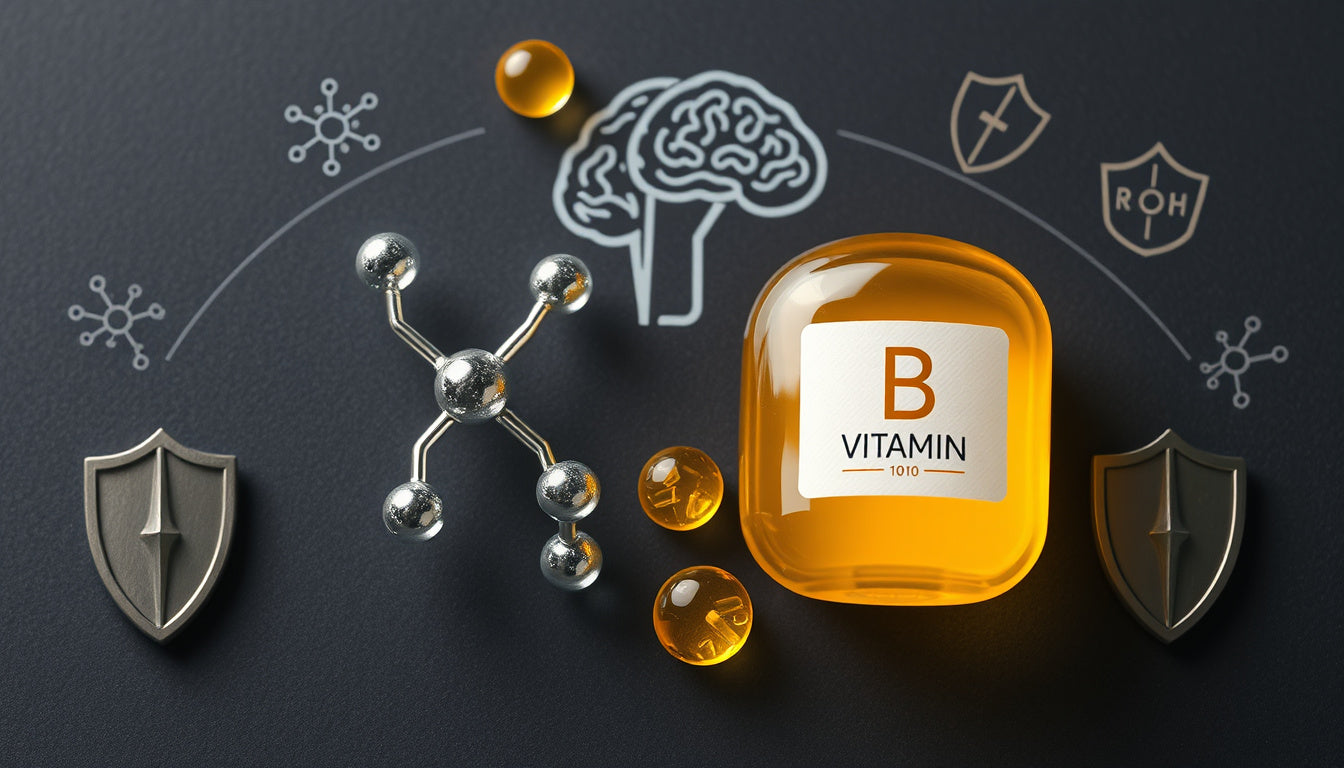
Unlocking the Secret to Brain Health: How These Two B Vitamins Might Shield You from Dementia!
Maintaining brain health is a priority as we age, especially with the increasing prevalence of dementia and Alzheimer's disease. Emerging research highlights the crucial role of certain B vitamins in protecting brain function and potentially slowing cognitive decline. In particular, vitamins B1 and B12 have been identified as key nutrients that support memory and brain energy metabolism, possibly shielding you from dementia. Understanding their impact can guide better nutritional strategies to preserve mental sharpness.
The Role of Vitamin B1 (Thiamine) in Brain Health
Vitamin B1, also known as thiamine, is a vital nutrient that plays a significant role in brain function. It acts as a cofactor in mitochondrial metabolism, which means it helps convert nutrients into energy inside brain cells. This energy production is essential for maintaining the health and function of neurons.
Connection Between Thiamine Deficiency and the Hippocampus
One of the most striking findings regarding B1 deficiency is its effect on the hippocampus, the brain region heavily involved in memory formation and retention. When the hippocampus experiences neurodegeneration or atrophy (shrinking), it is strongly linked to the development of Alzheimer's disease. Thiamine deficiency can damage the hippocampus in a way that resembles the harmful effects of hypoxia—a condition where the brain does not receive enough oxygen.
This damage can contribute to memory loss and cognitive decline. Therefore, maintaining adequate B1 levels is essential for protecting the hippocampus and supporting memory health.
Vitamin B12 and Cognitive Function
While B1 is pivotal for energy metabolism and hippocampal health, vitamin B12 also plays a crucial role in brain function. B12 deficiency is well-known to cause neurological symptoms including memory impairment, confusion, and even dementia-like conditions if left untreated.
Vitamin B12 contributes to myelin formation (the protective sheath around nerves) and supports overall neural integrity. Together, B1 and B12 help maintain proper cognitive functioning and may reduce the risk of dementia-related neurodegeneration.
Why You Should Monitor These Vitamin Levels
Vitamin deficiencies can often go unnoticed but carry significant implications for brain health. Thiamine deficiency is relatively common and can result from poor diet, chronic alcohol consumption, or certain medical conditions that affect nutrient absorption.
Regularly monitoring and correcting deficiencies of B1 and B12 can be a simple yet effective strategy to protect your brain against cognitive decline. Early intervention offers the best chance to preserve memory and mental clarity.
Supporting Brain Health Through Nutrition and Supplements
Incorporating foods rich in B1 and B12 — such as whole grains, legumes, nuts, lean meats, eggs, and dairy products — can help maintain optimal levels. In some cases, supplements might be recommended to counteract deficiencies and further support brain metabolism.
For those concerned about overall health, including hair and scalp conditions that can be affected by nutritional imbalances, exploring specialized hair products might offer supportive care. Since systemic health impacts hair and cognitive function, holistic approaches can provide better wellness outcomes.
In summary, ensuring adequate intake of vitamins B1 and B12 is a promising way to protect your brain's memory center and potentially reduce the risk of dementia. These nutrients are critical in sustaining energy metabolism, neural integrity, and cognitive resilience. Paying attention to your vitamin status could unlock the secret to lasting brain health.













